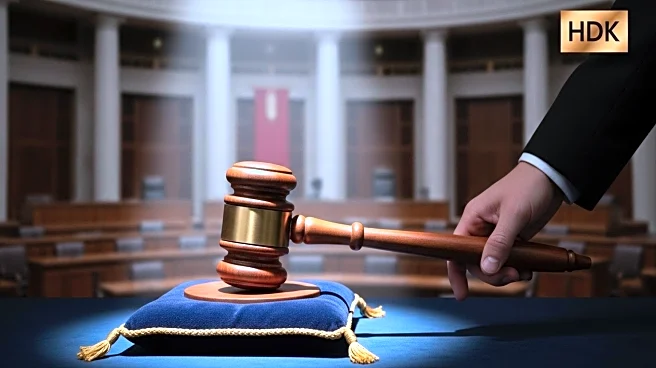What's Happening?
Democratic Representative Jerry Nadler, a prominent figure in New York's congressional delegation, has announced he will not seek reelection next year. Nadler, who has served in Congress since 1992, expressed the need for generational change, suggesting that a younger successor could better serve the district. His decision follows the entry of Liam Elkind, a 26-year-old Democrat, into the race as a primary challenger. Elkind had respectfully urged Nadler to retire, acknowledging his long political career while advocating for future leadership. Nadler's announcement has prompted praise from various political figures, including New York Governor Kathy Hochul, who commended his leadership and contributions.
Why It's Important?
Nadler's retirement marks a significant shift in New York's political landscape, potentially opening the door for new Democratic leadership in his district. As a former chairman of the House Judiciary Committee, Nadler played a crucial role in major legislative actions, including the impeachment proceedings against President Trump and the Pregnant Workers Fairness Act. His departure may influence the balance of power within the Democratic Party and impact future legislative priorities. The decision also reflects a broader trend of retirements among seasoned Democratic lawmakers, signaling potential changes in party dynamics and strategies ahead of upcoming elections.
What's Next?
With Nadler stepping down, the race for New York's 12th Congressional District is expected to intensify, attracting interest from various Democratic contenders. Liam Elkind, who has already declared his candidacy, may gain momentum as a potential successor. The Democratic Party will likely focus on maintaining its influence in the district while addressing generational shifts within its ranks. As the election approaches, candidates will need to navigate the challenges of appealing to both Nadler's established supporters and new voters seeking change.
Beyond the Headlines
Nadler's retirement raises questions about the future direction of the Democratic Party, particularly in terms of generational leadership and policy priorities. His departure may encourage younger politicians to step forward, potentially reshaping the party's approach to key issues such as social justice, economic reform, and climate change. Additionally, Nadler's legacy, including his role in impeachment proceedings and advocacy for workers' rights, will continue to influence political discourse and legislative efforts.









